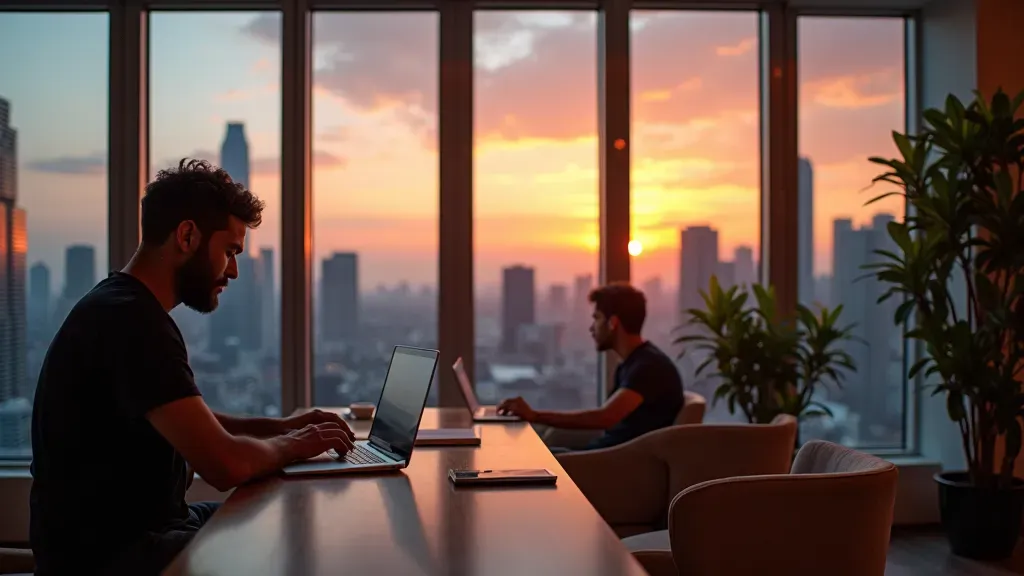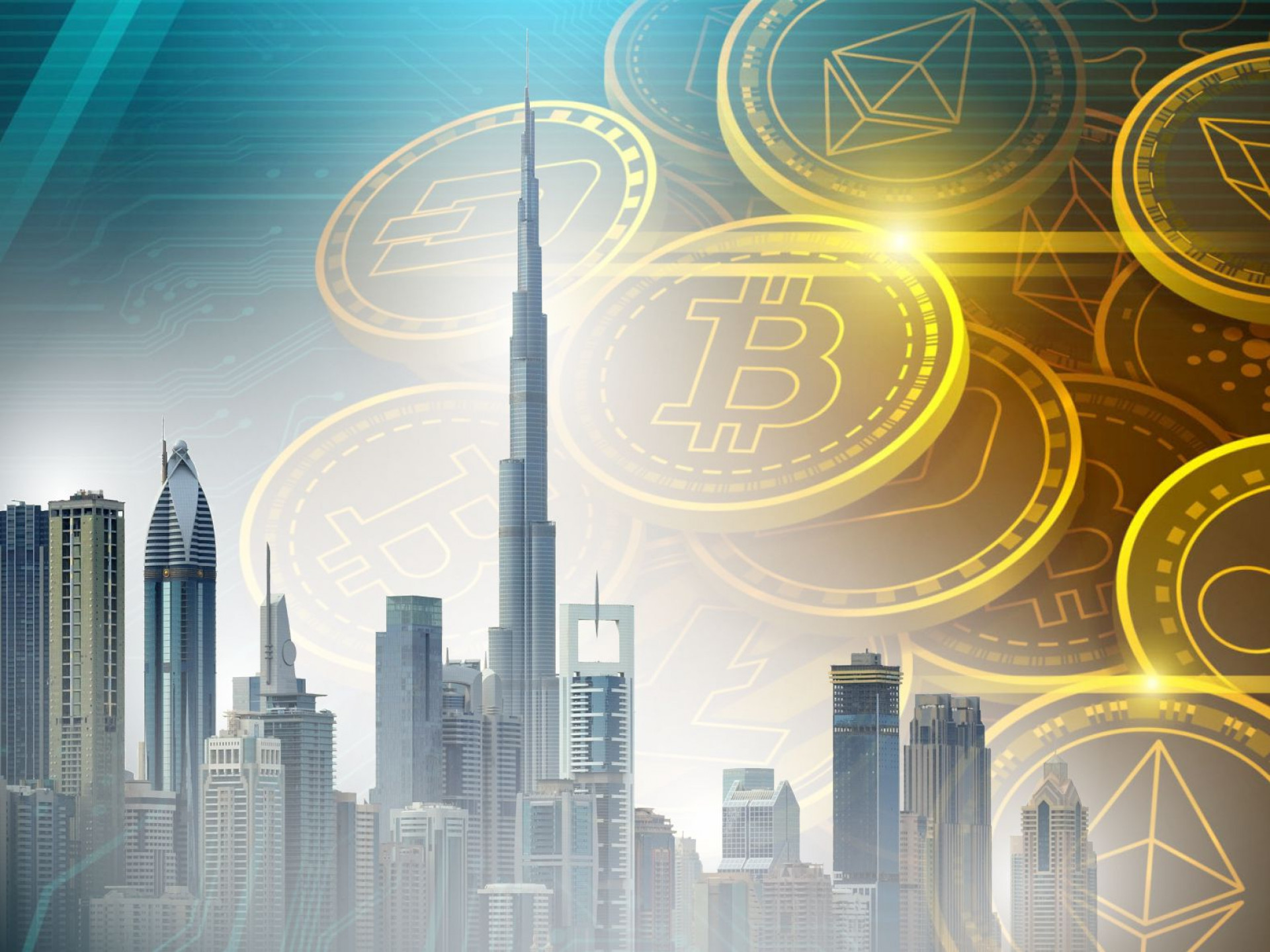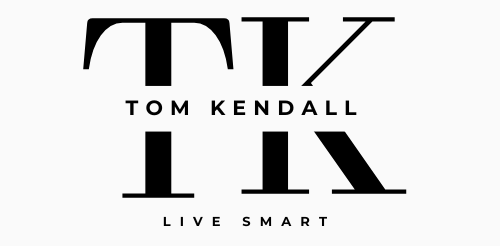Over the past decade, Dubai has transformed from a stopover city into one of the most attractive destinations for entrepreneurs, freelancers, and digital nomads. What was once seen as just a luxury tourist destination with skyscrapers and malls has now become a hub for remote professionals looking for a blend of lifestyle, business opportunities, and tax advantages.
The global shift towards remote work and independent careers has opened the doors for millions of professionals who no longer want to be tied down by geography. Cities like Lisbon, Bali, and Mexico City often get highlighted in the digital nomad world, but Dubai offers something different. It combines tax efficiency, global connectivity, safety, infrastructure, and high living standards in a way few cities can match.
This article explores how a digital nomad can set up an end-to-end life in Dubai, covering visas, business setup, banking, accommodation, networking, and lifestyle. By the end, you will see exactly how to take your digital nomad journey to Dubai and why it might be one of the smartest moves you ever make.
1. Why Dubai Appeals to Digital Nomads
The first question any digital nomad asks is simple: why Dubai? After all, it is not known for being cheap like Bali or Chiang Mai. Yet when you look deeper, the city offers advantages that outweigh its cost.
- Tax Benefits: Dubai has no personal income tax. That means whether you earn in dollars, euros, or crypto, your take-home pay is substantially higher compared to most Western countries. Even with the introduction of corporate tax at 9 percent, digital nomads operating through smaller entities often remain exempt.
- Connectivity: Dubai is perfectly placed between Europe, Asia, and Africa. A six-hour flight can take you to London, Mumbai, or Nairobi. Dubai International Airport is consistently ranked among the busiest and most connected airports in the world.
- Infrastructure: From fast Wi-Fi to coworking spaces, the city is built for productivity. Whether you want to work in a café overlooking the Burj Khalifa or rent a desk in a buzzing coworking hub, the infrastructure is world class.
- Safety: Dubai is one of the safest cities globally. Crime rates are extremely low, and digital nomads often find this peace of mind invaluable compared to other nomad hotspots where safety can be a concern.
- Lifestyle: Beyond work, Dubai offers beaches, desert adventures, luxury dining, affordable street food, and year-round sunshine. It is cosmopolitan, diverse, and welcoming to people from all over the globe.
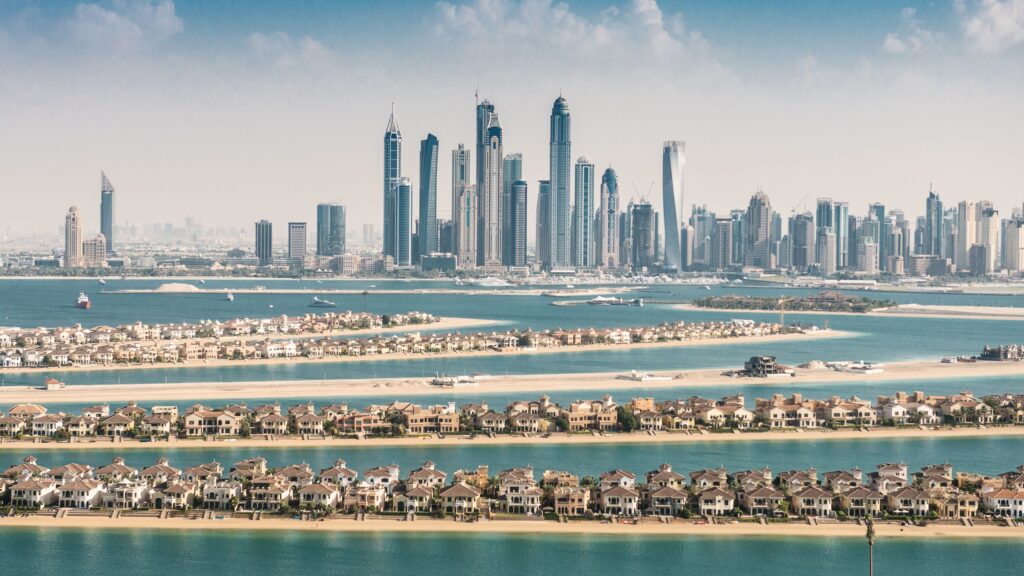
2. Choosing the Right Visa
The first practical step is choosing the right visa to stay legally in Dubai as a digital nomad. There are several routes depending on your situation.
Remote Work Visa
Dubai introduced the Virtual Working Program which allows remote workers to live in the UAE while working for overseas companies. You need proof of employment or self-employment, a minimum monthly income of around USD 3,500, and health insurance valid in the UAE. This visa is valid for one year and renewable.
Freelance Visa
Many digital nomads prefer the freelance visa, offered through Dubai free zones such as Dubai Media City, Dubai Internet City, and Dubai Design District. It allows you to operate as a freelancer legally, invoice clients, and open a local bank account.
Free Zone Company Setup
For those earning more or planning to scale, setting up a company in a free zone is often the best option. This provides a two- or three-year residency visa, flexibility to sponsor family, and a strong business structure. Some free zones offer packages that combine a company license with residency visas, making it very straightforward.
Golden Visa
If you want to go long term, Dubai also has a Golden Visa program that grants residency for 10 years. This is usually for investors, entrepreneurs, and certain categories of professionals.
For most digital nomads starting out, either the freelance visa or free zone company setup is the sweet spot.
3. Setting Up a Business in Dubai
While the word “business” might sound intimidating, setting up a legal structure in Dubai is surprisingly straightforward once you know the steps.
- Choose the right free zone: Dubai has more than 30 free zones, each catering to different industries. Some are tailored for media professionals, others for tech startups, and some are more general. Each free zone has its own packages, pricing, and requirements.
- Apply for a trade license: This license allows you to operate legally. As a freelancer, your license will reflect your skillset such as “marketing consultant” or “content creator.”
- Residency visa: With your trade license, you can apply for your visa. The duration typically ranges from one to three years.
- Emirates ID: Once your visa is stamped, you receive an Emirates ID, which is essential for opening a bank account, renting an apartment, and many other daily needs.
- Banking: Opening a bank account is smoother once you have your Emirates ID. Some banks are better suited for freelancers and small companies, so it is important to choose carefully.
What makes Dubai different is the level of support you can get. Free zones often have dedicated customer service teams to guide you through the process, and consultants can take care of paperwork end-to-end.
4. Banking and Finance
Money is at the center of every digital nomad’s journey. Dubai offers a secure, globally connected banking system, but you must know how to navigate it.
- Personal Bank Accounts: With your Emirates ID, you can open a personal bank account. Banks such as Emirates NBD, Mashreq, and ADCB are popular choices.
- Business Accounts: Once your free zone company is established, you can open a corporate account. This is essential if you invoice international clients.
- Digital Banks: Options like Wio and Liv are becoming popular among younger professionals. They offer fast setup, modern apps, and flexibility.
- Currency and Transfers: Since most digital nomads earn in foreign currencies, having a multi-currency account or using services like Wise and Revolut helps minimize conversion fees.
Dubai is also one of the fastest-growing crypto hubs. For those working in Web3, the city offers crypto-friendly banks and regulations, making it easy to operate in digital assets.
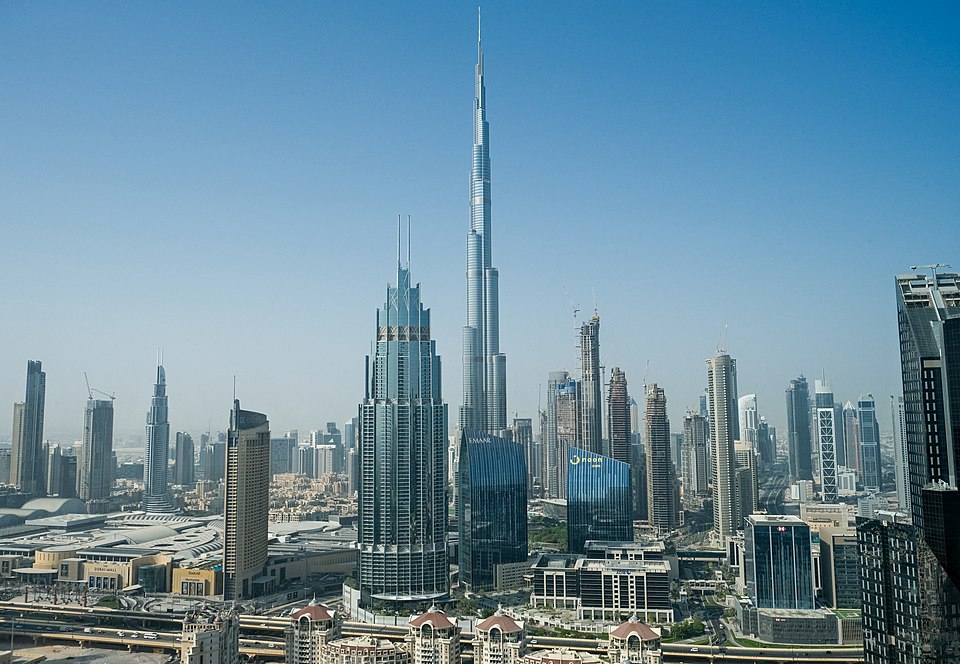
5. Accommodation Options
Where you live plays a huge role in your experience as a digital nomad. Dubai has options for every budget and lifestyle.
- Short-Term Rentals: Airbnb is widely available, but monthly rates can add up quickly. Platforms like Blueground also offer furnished apartments for longer stays.
- Co-living Spaces: Increasingly popular among young nomads, co-living spaces such as Hive Coliv and Koa offer community-driven living where rent includes utilities and shared workspaces.
- Long-Term Rentals: Once you settle, renting an apartment directly often works out cheaper. Neighborhoods like JLT, Dubai Marina, and Downtown are favorites for expats. More budget-friendly options include Al Barsha and Deira.
Renting typically requires a one-year contract, a security deposit, and checks post-dated for the year. However, some landlords and agents offer flexible terms for nomads.
6. Healthcare and Insurance
Dubai has excellent healthcare facilities, with hospitals and clinics matching international standards. Health insurance is mandatory for residents, so when applying for your visa, you must show proof of coverage.
Nomads often opt for global insurance providers like Cigna or Allianz, but local providers also offer cost-effective plans. The important part is ensuring your insurance covers you for outpatient visits, emergencies, and routine checkups.
7. Networking and Community
Dubai is a city built on networking. It attracts ambitious people from around the world, and for a digital nomad, this can open doors you did not expect.
- Coworking Spaces: Spaces like Astrolabs, Nasab, and Nook are not just about a desk but about meeting like-minded professionals.
- Events and Meetups: From startup pitch nights to blockchain gatherings, Dubai has constant events. Websites like Meetup and Eventbrite list them, and many free zones host their own networking sessions.
- Clubs and Memberships: Many professionals join clubs like Soho Garden or golf clubs not just for recreation but also to build business relationships.
Unlike in other nomad hotspots where community is often casual, Dubai offers a professional yet welcoming network that can accelerate your career.
8. Lifestyle and Cost of Living
It is true that Dubai can be expensive. But with smart choices, a digital nomad can live comfortably without overspending.
- Housing: Shared accommodation starts from around AED 2,500 per month, while a one-bedroom apartment in Marina might cost AED 6,000 to 8,000.
- Food: Eating out ranges from AED 15 at a local cafeteria to AED 200 for fine dining. Many nomads mix both.
- Transport: The metro is efficient and affordable, while taxis and ride-hailing apps are widely available. Owning a car is optional.
- Leisure: Beaches are free, desert trips cost around AED 200, and gyms range from AED 200 to 600 monthly.
The city gives you the flexibility to live modestly or indulge in luxury depending on your budget.

9. Challenges to Consider
No city is perfect. For digital nomads, Dubai has some challenges.
- Visa Restrictions: Unlike Europe’s Schengen visa, Dubai’s residency is tied to a business or employment setup. This means paperwork and renewals are unavoidable.
- Cost: While tax savings are huge, upfront setup costs for visas and licenses can feel high.
- Weather: Summers are extremely hot, with temperatures exceeding 45°C. Many nomads plan to travel during peak summer months.
- Cultural Differences: While Dubai is liberal compared to the region, it is important to respect local customs and laws.
The key is preparation. Those who plan well usually find these challenges minor compared to the benefits.
10. Step-by-Step Roadmap for Digital Nomads
To summarize the process, here is a simple roadmap:
- Choose your visa type (freelance visa or free zone company setup are the most common).
- Apply for your license through a free zone or consultant.
- Receive your residency visa and Emirates ID.
- Open a bank account and set up your finances.
- Secure accommodation based on your budget.
- Get health insurance.
- Join coworking spaces and networking events.
- Explore the city and make Dubai your base.
With this roadmap, what feels complex at first becomes manageable.
11. Why Dubai is the Future of Digital Nomadism
Dubai is not trying to compete with Bali or Chiang Mai. Instead, it is carving its own place as a premium nomad destination. Professionals who are earning well, looking for tax efficiency, safety, and global connectivity, find Dubai unmatched.
The government is actively making it easier. Initiatives like the remote work visa, crypto-friendly regulations, and support for startups show that Dubai wants to attract the new wave of global talent.
If you are a digital nomad who is tired of unstable internet, complicated tax rules, or limited opportunities, Dubai offers a structured yet exciting alternative.

How GenZone can help?
Moving to Dubai as a digital nomad is not just about changing your address. It is about opening doors to higher income retention, global business opportunities, and a lifestyle that blends productivity with adventure.
That said, setting up in Dubai requires navigating paperwork, licenses, visas, and banks. Many digital nomads waste months trying to figure it out alone, spending more money and time than necessary.
This is where GenZone comes in. They specialize in helping entrepreneurs, freelancers, and digital nomads set up their life in Dubai end to end. From choosing the right visa to handling your company license, opening your bank account, and even advising on housing and insurance, our team ensures you get everything done smoothly.
GenZone’s setup packages are simple, clear, and without hidden renewal fees. You focus on your work and lifestyle, while they take care of the formalities.
If you are ready to make Dubai your next base, reach out to GenZone. They will guide you every step of the way so you can live, work, and thrive in one of the most dynamic cities in the world.

